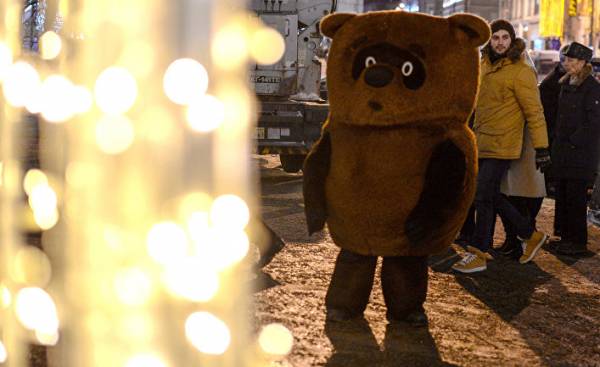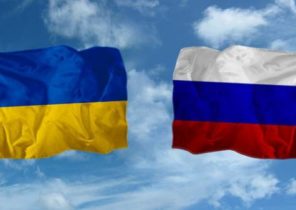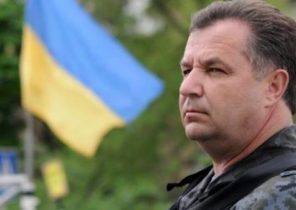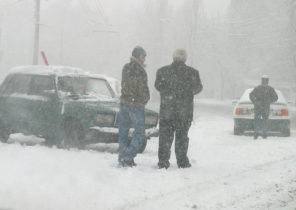
French photographer Didier Bizet (Bizet Didier) many years of traveling to Russia. In his series of photographs he has tried to capture that melancholy, which is considered one of the essential ingredients of the Russian soul. As the correspondent of Politiken in Russia thinks about what they are actually Russian?
It was one of those evenings when you’re spinal cord feel that you’re in Russia. In a good way. The home of Galina and her family in modest but comfortable apartment on the outskirts of the cities of Yekaterinburg in the Urals mountains.
This carpet over the sofa in the living room. Beautiful porcelain in the closet-showcase. Photos of relatives on the shelves and walls, embroidery, simple icon, a tourist poster from Egypt. Old TV is turned on the First channel is loud, but no one pays attention to either news, nor cloying musical shows or on the evening of the Soviet film of the late 1970s.
Didier Bizet (Bizet Didier)
Born June 21, 1964 in Lyon. Passing the exams at the Academy of arts in 1989 and worked in advertising.
In June 2015 went to work for the photo Agency Hans Lucas.
Didier Bizet’s several years traveling to Russia and exhibited his photos and in Russia and in Western Europe.
Galina, her daughter Elizabeth and Evangeline, her brother Eugene, her parents, Irina and Alexander and I are sitting at a table in a small kitchen. A large platter with pies with cabbage. Pancakes and sour cream — sour cream. Pickles and tomatoes. The fresh dill. Dish of sardines. Salty bacon. Sweet rye bread. The samovar with water for tea. Dish with apples, candy, white and pink slices of one of the Russian sweets called pastila. Then vodka, the Armenian cognac. Vodka more.
Long toasts with wishes of peace and friendship and brotherhood of peoples. Conversations about culture and nature, geography and history, football and gymnastics, a little about politics. A cursory recitation of Pushkin, Yesenin and Bulgakov, as for Andersen and Astrid Lindgren, it seems that the Russian sitting at the table, from nine-year-old Evangeline and her to Alexander, who is almost 70, and know them better than their Danish guest.
With the guitar comes the neighbor Igor, begins to sing songs of Bulat Okudzhava and Vladimir Vysotsky — it turns out that it can join everything except the author of these lines. Many, including the author of these lines, in the eyes intermittently tear up. From empty living nearby heard the sound of the First channel. More toasts, more vodka, more tea, more talk about various things.
I met Galina on the same day. She is by education an electrical engineer, but a permanent job she doesn’t have since like 12 years ago Elizabeth was born, her older. And now she drives a taxi in Russia — a lesson for women is more unusual than the work of an electrical engineer. She took me to the airport in a white Hyundai when I use the mobile application “Yandex-taxi”, the Russian version of Uber, booked a car to get to the house, which I rented through Airbnb.
“Where are You from?” — that was her first question. After she placed the head on the shelves (“A-Ah, Copenhagen “the little Mermaid”), followed by a second: “And what’s your Zodiac sign?”
I am an Aries and it turned out that Galina is Gemini. We continued to turn each other on “You”, it is usual for Russia.
When she heard that I was in Yekaterinburg in 2002, insisted to show me some of the sights of the city. The Church on spilled blood, built over the place where the last Tsar and his family were killed by Bolsheviks in 1918. Skyscraper “Vysotsky” in 52 floors. A sparkling shopping center called Greenwich. And the outdoor cinema in the Park Mayakovsky.
“I myself have never been here. I have no time, and not with anyone,” — says Galina, not flirting, just stating a fact.
Then we had deep conversations about who is more alone the Russians or the Danes (agreed, apparently, Danes), who is more emotional (in all probability, Russian) and who is more melancholic (again Russian). And after 20 minutes we talked in the car with the engine running under the Windows my removed through Aibnb apartment, she suggested I just got up and left the apartment in a bag, and then went with her to her home and met her family.
I will not say what happens in Russia often.
But I’m pretty sure that Russian is much less likely to be invited home to family a random taxi driver in Odense. Or to be invited to a dried fish, nuts and vodka with their neighbors in the compartment in the train from Aarhus to Copenhagen. Or — I have experienced this recently in one of Moscow’s bars to obtain amendments from the polite young man who was curious after he heard my assessment of the development of the current political situation in the country.
At the first meeting, many Russian seem buttoned-up, unfriendly, unhappy, and sometimes simply evil. About whom the matter was discussed: a policeman, a cashier at the supermarket, the ticket collector at the station or the neighbors down the block. It’s pretty tough. A smile is seen as something absurd and not appropriate.
But it is necessary to overcome the first barrier, and you will discover the friendliness, courtesy and hospitality, the likes of which few places in Europe you can find.
Tell (and often exaggerate) how Russia and Russian — other. From the words of the Russian poet of the XIX century Fyodor Tyutchev “Mind Russia not to understand” to British Prime Minister Winston Churchill about Russia as “a riddle wrapped in a mystery inside a puzzle.”
Russians themselves love to talk about the “Russian soul”, although in reality the Russians are as different from each other, as different from each other and the Danes, and other Europeans.
As part of this soul is often called spirituality (although modern entertainment programs on Russian television almost as superficial, pompous and sparkling, as, for example, similar to Italian), Orthodoxy (although very few Russians go to Church), traditional family values (though divorces, abortions and casual sex are incredibly common) and patriotism (though many Russians sneer as about what is happening in the country and about the leaders, including Putin).
Other ingredients that more critical observers find in the Russian soul, it’s defeatism, cynicism and inferiority complex, which often took the form of arrogance. And still melancholy, which the French photographer Didier Bizet’s so wonderful caught in its sequence.
In the Russian language there is such a thing — longing. That word, despite the fact that the dictionary Gyldendals Røde Ordbog defines it as “anguish, sorrow, melancholy, sadness” — in fact, according to the Russian writer Vladimir Nabokov, translated can not be.
“Really deep and painful level it’s the strongest feeling of mental suffering, often without understandable reasons. In less severe variants it can be aching emotional pain, the desire is not clear what, painful longing, a vague restlessness, anguish of mind, unclear traction. In specific cases it is the desire for someone or something (nostalgia, love of suffering). At the lowest level — the sadness, the boredom,” wrote Nabokov, who died in 1977.
100 years before his more famous compatriot and colleague at the writers ‘ workshop Fyodor Dostoevsky was raised in his diary the same theme:
“I think the most important, most fundamental spiritual need of the Russian people is the need for suffering, perpetual and insatiable, everywhere and in everything. This thirst for suffering it seems to be infected from time immemorial of centuries. Suffering the jet passes through its entire history, not only from external misfortunes and disasters, and swing out of the hearts of the people. The Russian people even in happiness is certainly part of suffering, or happiness for him, it is incomplete,” wrote Dostoevsky.
That, of course, is not all Russian, who are quite different.







